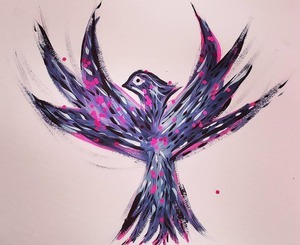15232445
Psychoanalytic Theories
Description
No tags specified
Flowchart by Robin Decker, updated more than 1 year ago
More
Less

|
Created by Robin Decker
over 5 years ago
|
|
Resource summary
Flowchart nodes
- Psychoanalytic Theories
- Object Relations Theory
- Development Theory
- Behavioral Theory
- Cognitive Behavioral Theory
- Humanistic Theory
- Freud Unconscious *Talk Cure *Hypnosis, then free association, then dream interpretation
- Erikson Ego Growth *Neo-Freudian * More Society & Culture * Physical, social, intellectual factors *Sense of purpose 8 Problem solving * Skill acquisition
- Jean Piaget *Studied children * Abstract reasoning
- Havinghurst *Development a continuous process * Tasks accomplished @ stages
- Ivan Pavlov * Russian physiologist * Digestion * Pavlov's dogs
- B.F. Skinner * Air-crib * Skinner Rat box
- Albert Ellis * RET/REBT *Worked with ABCD's of Experience
- Albert Bandura * Social Modeling Theory * Learn via Imitation * More effect vs. trial/error approach * Bobo Dolls * Aggressive behavior learned via observation
- Carl Rogers * Client Centered therapy vs. Patient * Feelings/choices * Empathy * Theory: A single "life force" called Actualizing Tendency * Based on Maslow's Self-Actualization * Warm, non-directive therapist
- Abraham Maslow * More a theorist than therapist * People basically trustworthy, self-protecting, self-governing * Self fulfillment * Assumptions
- 2 Basic Drives 1. sexual/life 2. Agression/death
- Id, Ego, Superego
- 5 Stages of Development 1. Oral 2. Anal 3. Phallic 4. Latent 5. Genital
- Defense Mechanisms: Repression Denial Projection Rationalization Conversion Regression Undoing Idealization Identification Sublimation Substitution Displacement Compensation
- Terms 1. Epigenetic principle 2. Developmental lag
- 8 Stages - Development Tasks 1. oral sensory - Trust vs Mistrust 2. anal muscular - Autonomy vs Shame/doubt 3. genital-locomotor - Initiative vs. Guilt 4. latency - Industry vs Inferiority 5. adolescence - Identity vs Role Confusion 6. young adult - Intimacy vs Isolation 7. middle adult - Generativity vs Stagnation 8. late adult/maturity - Ego integrity vs Despair
- 4 Stages Sequential Development 1. Sensorimotor 2. Pre-operational 3. Concrete operations 4. Formal operations
- Terms 1. Assimilation: new info incorporated into existing ideas. 2. Accommodation: new info = modify ideas 3. Adaptation: functional, cognitive or behavioral trait that benefits an organism in its environment. 4. Conservation: logical thinking 5. Seriation: sorting 6. Object Impermanence: thinking things disappear 7. Reversibility: things can go back to original condition 8. Schemas: a pattern of thought or behavior that organizes categories of information and the relationships among them.
- Tasks: Physical/Intellectual Social/Personal 1. Infancy 2. Toddlerhood 3. Early childhood 4. Middle childhood 3 pushes 5. Adolescence 6. Early adulthood 7. Middle adulthood 8. Later maturity
- 5 Functions of Work 1. Income 2. Expenditure of time & energy 3. Identification & Status 4. Association 5. Source of meaningful life experience
- Classical Conditioning = Physical Responses
- Terms: 1. Unconditional stimulus 2. Unconditional response 3. Conditioned stimulus 4. Conditioned response
- Operant Conditioning = Action/ Consequence
- Terms: 1. Reinforcement 2. Terminal behavior 3. Shaping 4. Chaining 5. Schedule of reinforcement 6. Extinction
- RET/REBT w/ ABCD's of Experience
- Terms: 1. Activating agent 2. Belief 3. Consequences 4. Disputation 5. Corrective emotional experience
- Focus of Therapy Divide beliefs into rational vs. irrational
- Learn via 4 Processes 1. Attention 2. Retention 3. Reproduction 4. Motivation
- Terms: 1. Non-directive 2. Unconditional positive regard 3. Accurate empathy 4. Open invite to talk 5. Minimal response 6. Reflection of Feeling 7. Paraphrasing 8. Warmth/Withhold judgment
- Hierarchy of Needs Deficit Needs (Basic Human) 1. physiological 2. safety 3. love & belonging 4. esteem Being Needs (most people never arrive here) 5. Self-Actualization
- Mental Health/Illness determined by relationships w/Objects (Human/non-Human) & Environment
- Central concept: all behavior learned/acquired through conditioning
- Basis: All behavior based on what we think/believe. Automatic Thoughts: inappropriate/irrational thinking patterns Events neutral: receive meaning from our thoughts Attribution: Meaning placed on event or situation
- Divide child development into distinct stages characterized by qualitative differences in behavior.
- An approach which studies the whole person & uniqueness of each individual.
Want to create your own Flowcharts for free with GoConqr? Learn more.
